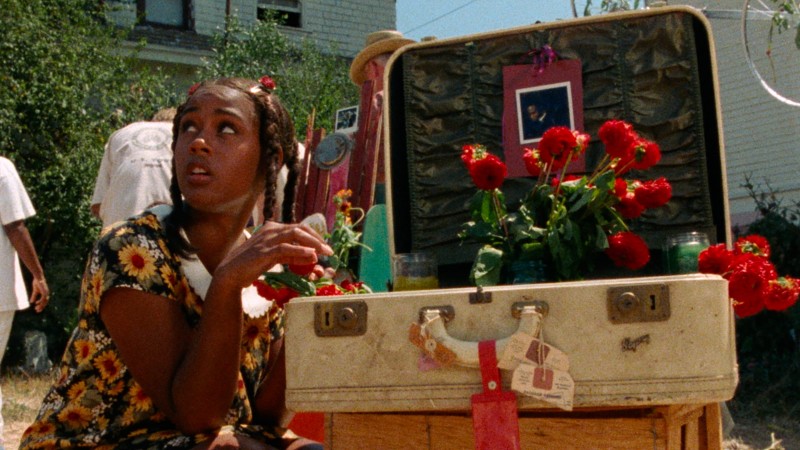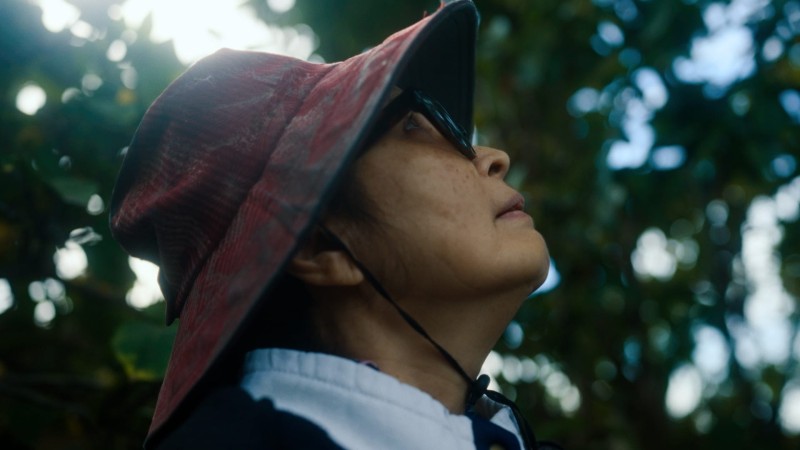Alphabet Soup: A Conversation with Topaz Jones and rubberband.

What do amphetamines, intellectual property, and Sour Belts have in common? They all correspond to a letter of the alphabet that structures the world of Don’t Go Tellin’ Your Momma, the short-film companion to musician and filmmaker Topaz Jones’s funk-infused hip-hop album of the same name. Inspired by the Black ABCs, an educational resource created in the ’70s to give Black students a letter chart more reflective of their experiences, the film pairs letters with subjects drawn from Jones’s memories of growing up in Montclair, New Jersey, as well as insights from members of his community. The result is a propulsive and kaleidoscopic portrait of Black life composed of twenty-six vignettes that vary in length, style, and mood—including galvanizing interviews with local activists, intimate home-video footage, and whimsical and at times otherworldly scenes depicting young people hanging out in their neighborhoods.
Don’t Go Tellin’ Your Momma, which Jones codirected with his regular collaborators Jason Sondock and Simon Davis (the directing duo known as rubberband.), is currently available on the Criterion Channel. To celebrate its premiere, I chatted with Jones, Sondock, and Davis about their approach to filmmaking and the challenges of making the project’s many moving parts cohere and sing.




